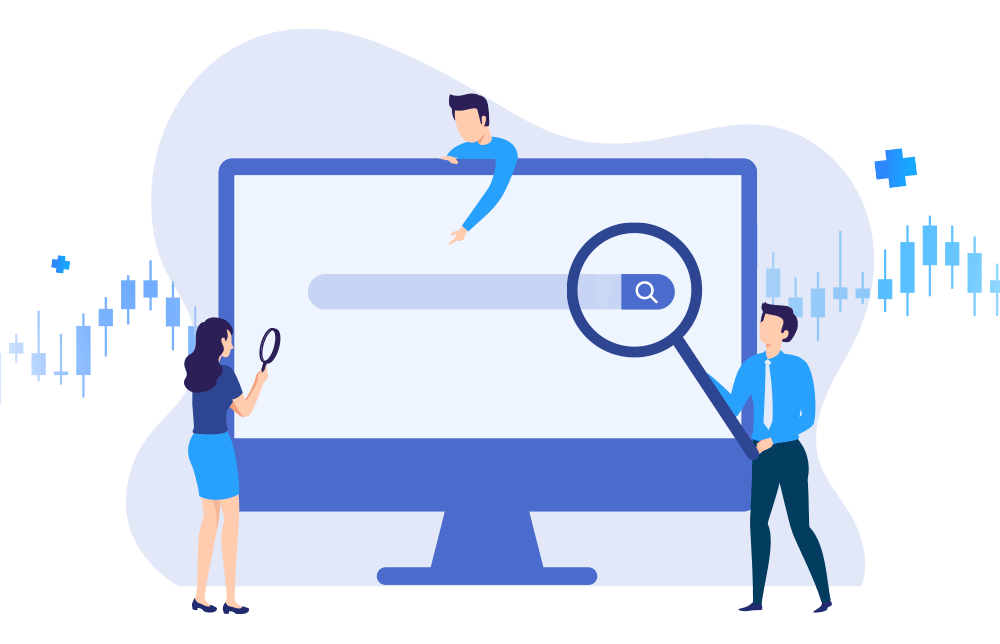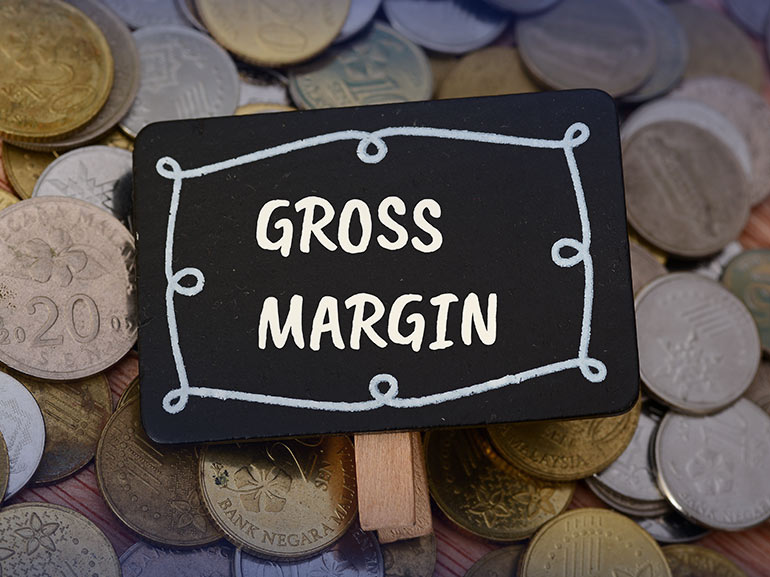Alphabet Explained: An Introduction to GOOG Stock Trading
Date Modified: 22/09/2024
Alphabet is the parent company of Google, the most popular search engine in the world. It is also worth noting that in 2023, Alphabet ranked fourth among the largest companies in the world by market capitalisation.
This article provides insights into Alphabet's business segments, stock market performance and trading instruments.

Main Points:
- Alphabet is Google's parent company and owns significant subsidiaries like XXVI Holdings Inc., Google Ireland Holdings, and Alphabet Capital US LLC. It manages over 160 businesses.
- Alphabet Inc. has three classes of common stock: Class A Shares (GOOGL), Class B Shares, and Class C Shares (GOOG).
- Alphabet's operations are divided into three major segments: Google Services, Google Cloud, and Other Bets.
- Traders can gain exposure to the price movement of Alphabet Class C shares (GOOG) through share dealing, contracts for differences (CFDs), or index funds.
What Is Alphabet Inc.?
Alphabet Inc., a public multinational technology conglomerate based in Mountain View, California, owns several significant subsidiaries, including Google LLC, XXVI Holdings Inc., Google Ireland Holdings, and Alphabet Capital US LLC. Together, these entities manage over 160 businesses. Alphabet's organisational structure was inspired by Warren Buffett's management approach at Berkshire Hathaway (BRK.B).
The Difference Between Alphabet and Google
Alphabet is the parent holding company, managing a range of independent subsidiaries, including Google. Here are the critical differences between Alphabet and Google.
- Scope of Operations: Alphabet oversees diverse projects through subsidiaries such as Calico, Google Life Sciences, Nest Labs, and Waymo, including DeepMind, while Google manages internet-related products and services like Android, YouTube, Google Maps, and the search engine.
- Research and Development: Alphabet focuses on innovative and specialised projects, including self-driving cars, drone delivery systems, and health-related research. In contrast, Google focuses on developing its primary internet services and consumer platforms.
- Corporate Culture and Ethics: Alphabet adopts a concise code of conduct emphasising broader ethical guidelines like "do the right thing." While Google retains its original, detailed code of conduct, including the “don’t be evil” principle.
- Strategic Vision: Alphabet aims for diversification and innovation, allowing subsidiaries the flexibility to pursue groundbreaking technologies and explore new markets, while Google concentrates on revenue generation from advertising and enhancing its core services.
Product and Services of Alphabet Inc.
Alphabet Services is separated into three major segments: Google Services, Google Cloud, and Other Bets.
- Of the three aforementioned segments, Google Services is the largest. It contributed approximately 77.4% of the total revenue in 2023. The breakdown includes ads on Google Search and other applications, generating 56.9%, YouTube ads at 10.3%, and Google Network ads at 10.2%.
- Google Cloud provides enterprise-level cloud computing solutions for businesses and governments.
- Other Bets include Alphabet’s emerging-stage businesses like Waymo (self-driving cars), Calico Life Sciences (biotech research), Nest (smart-home devices), CapitalG (private equity fund), and DeepMind (AI research), among many others.
History and Key Developments of Alphabet Inc.
This section details Alphabet Inc.'s strategic evolution into a leading conglomerate.
Alphabet Founding and Early Years (1997-2004):
- Alphabet Inc. began its journey in 1997 when Larry Page and Sergey Brin registered the domain name Google.com and incorporated the company as Google Inc.
- Google's innovative algorithms, simple user interface, and reliable performance quickly made it the dominant player in the search engine market.
- With the support of Morgan Stanley (MS) and Goldman Sachs (GS), Google achieved a successful IPO in 2004. It went public with a valuation of $23 billion and started trading on the NASDAQ stock exchange with the symbol GOOG at $85 per share.
Google's Dominance and the Birth of Alphabet (2005-2015):
- In 2014, Google underwent a 2-for-one stock split, creating a third common stock class (class C shares). This was done to preserve the voting rights of the founders and key executives.
- After the split, Google's Class A shares with voting rights traded under the new ticker GOOGL, while the new Class C shares with no voting rights took over the old stock ticker “GOOG”.
- In 2015, Google established Alphabet Inc. as a holding company to oversee Google and its various subsidiaries. Alphabet retained Google's stock price history and continued to trade under the ticker symbols "GOOG" and "GOOGL"
Alphabet Major Developments (2016-2024):
- Alphabet's DeepMind division gained significant attention by creating the first computer capable of defeating a professional Go player, a milestone achieved in early 2016.
- Later, in 2019, Sundar Pichai was appointed CEO of both Alphabet and Google following the resignation of Larry Page and Sergey Brin from executive roles.
- The company approved another stock split in mid-2022 to make its shares more accessible to retail investors. This time, it was a 20-for-one stock split. Notably, major tech giants like Tesla (TSLA), Apple (AAPL), Amazon (AMZN), and Nvidia (NVDA) have previously implemented stock splits as well.
- Alphabet announced its first-ever dividend of 20 cents per share in April 2024, sending its shares up 15%.
The Classification of Alphabet’s Shares
Alphabet Inc. is a publicly traded company, and it has three classes of common stock:
- Alphabet Class A Shares (GOOGL): This class of shares has voting rights of one vote in 2024. It was initially sold to the public during Google's first IPO in 2004.
- Alphabet Class B Shares: As of 2024, this class of shares has voting rights of 10 votes. It is held by Alphabet co-founders and executives, allowing them to maintain majority voting power.
- Alphabet Class C Shares (GOOG): This class of shares has no voting rights but trades closely in price with Class A shares despite lacking voting power.
Class A shares GOOGL and class C shares GOOG are traded on the NASDAQ stock exchange. Both classes of Alphabet shares are also featured in major stock market indices such as the NASDAQ-100 and the S&P 500.
The Financial and Stock Performance of Alphabet Inc.
After briefly exploring Alphabet's evolution, it is also important to have an overview of the company’s finances and performance indicators.
Alphabet Inc. Stock Market Performance
- Alphabet (GOOG) All-Time Low: Alphabet reached its all-time low of 24.56 USD on January 12, 2015.
- Alphabet (GOOG) Long-Term Performance: As of July 2024, Alphabet's stock price rose 30% year-to-date (YTD) and gained approximately 50% over the past 12 months.
Alphabet Inc. (GOOG) Market Capitalisation and Outstanding Shares
- In mid-2024, Alphabet Inc. had a market capitalisation worth $2.25 trillion.
- In addition, the company holds 5.62 billion shares outstanding and has a public float of $5.22 billion.
Alphabet Inc. (GOOG) Earnings Performance
- Mid-2024, Alphabet Inc. had a strong earnings per share (EPS) of $6.52, indicating that the company was operating at a profit.
- In addition, Alphabet Inc.'s price-to-earnings ratio (P/E) was also positive in mid-2024 at 28.12. However, this performance might change in the future.
Factors Affecting Alphabet Inc. (GOOG) Stock Performance
Alphabet's stock price is influenced by a variety of factors, with the main ones being as follows:
- Innovation and Market Expansion: Alphabet's commitment to innovation, as evidenced by its development of new products and expansion into emerging markets, has historically been a key driver of its stock price. However, the rapid evolution of technology, particularly the emergence of AI-powered search engines like ChatGPT, poses a potential challenge to the company's core search business.
- Competition for Market Share: Alphabet and Facebook have held a dominant position in the digital advertising market since 2014. Nevertheless, their combined market share declined below 50% in 2022 as competitors such as Amazon (AMZN), TikTok, and Netflix (NFLX) gained traction. This increasing competition could impact Alphabet's revenue growth and profitability.
- Regulatory Environment: Alphabet's operations are subject to a complex regulatory landscape, encompassing antitrust concerns and data privacy regulations. Adverse regulatory actions could disrupt the company's business operations, potentially impacting its market dominance and financial performance.
- Financial Performance: Investors closely watch Alphabet's quarterly earnings reports. Strong revenue growth, net income, and earnings per share (EPS) correlate with positive stock price movements. Conversely, underperformance relative to market expectations can lead to downward pressure on the stock price.
- Economic Conditions: Alphabet's advertising revenue is closely tied to overall economic conditions. Periods of economic expansion often coincide with increased advertising spending, benefiting the company. Conversely, economic downturns can reduce advertising budgets, impacting Alphabet's top-line growth. Additionally, the performance of other Alphabet revenue streams, such as cloud services and subscriptions, can be influenced by broader economic trends.
How to Trade Alphabet Inc. (GOOG) Stock
There’s a myriad of ways to trade Alphabet’s stock; here are some of the most common ones:
Share Dealing:
Share dealing gives you outright ownership of Alphabet stocks. It involves buying and holding Alphabet stock for a long duration of time. You can then sell the stock at a premium price to profit from its potential stock price appreciation. Investors can also profit from dividends paid to shareholders.
Trading Derivative Instruments
- Contracts for Differences (CFDs): CFDs are derivative products that allow traders to obtain direct exposure to the price fluctuations of Alphabet shares without owning the shares. Therefore, traders who speculate on Alphabet shares CFDs will profit or lose depending on the price movement of Alphabet shares.
- Options CFDs: CFDs on options are another way to gain exposure to the price movement of Alphabet shares. Trading options CFDs on Alphabet shares involve speculating on Contracts for Differences based on option contracts. These contracts provide the right to buy (call options) or sell (put options) Alphabet shares at a predetermined price within a specific timeframe.
Diversification
- Indices: Several indices track Alphabet shares, providing investors with exposure to its performance. Alphabet is included in the S&P 500 index, one of the most widely followed equity indices, comprising 500 of the largest companies listed on U.S. stock exchanges. Additionally, Alphabet is part of the NASDAQ-100, which includes the largest 100 US tech companies listed on the NASDAQ stock market.
- Mutual Funds: These funds pool money from multiple investors to purchase a diversified portfolio of stocks that include Alphabet shares. This approach provides diversification, thus reducing the inherent risk associated with investing in only Alphabet stock. Examples of mutual funds providing exposure to Alphabet stocks include the Vanguard 500 Index Fund and the SPDR S&P 500 ETF Trust.
- Exchange-Traded Funds (ETFs): ETFs are investment vehicles traded on stock exchanges. These funds typically mirror the performance of a group of financial assets, commodities or a specific index. Investors seeking exposure to Alphabet's stock price movements may consider ETFs that include Alphabet shares.
Conclusion
Alphabet Inc. is a global leader in technology and innovation, overseeing a diverse range of subsidiaries and business ventures. As Google's parent company, Alphabet is at the forefront of internet-related services and products, including search, advertising, cloud computing, and artificial intelligence.
When evaluating trading opportunities with Alphabet shares, key considerations include its dominance in the digital advertising space, growth in cloud services, potential regulatory challenges, and the impact of new technological advancements. Alphabet’s inclusion in major stock market indices like the S&P 500 and NASDAQ-100 further emphasise its significance in the global market.
FAQs
Sundar Pichai is the current CEO of Alphabet and its subsidiary, Google (as of July 2024).
Yes, Alphabet Inc. pays dividends quarterly. As of 2024, Alphabet Inc. (GOOGL) pays a quarterly dividend of $0.20 per share, and the dividend yield was 0.46%.
Alphabet Class A (GOOGL) and Class C (GOOG) shares are distinct classes of shares with different attributes. However, Class A shares (GOOGL) trade at a slightly higher price than Class C shares (GOOG) due to voting rights
Learn More About Alphabet
Related News & Market Insights
Get more from Plus500
Expand your knowledge
Learn insights through informative videos, webinars, articles, and guides with our comprehensive Trading Academy.
Explore our +Insights
Discover what’s trending in and outside of Plus500.
Stay up-to-date
Never miss a beat with the latest News & Markets Insights on major market events.


